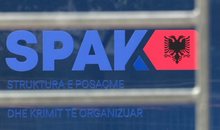
Tourist attraction? Residents in the Kukes region still suffer from lack of roads and water
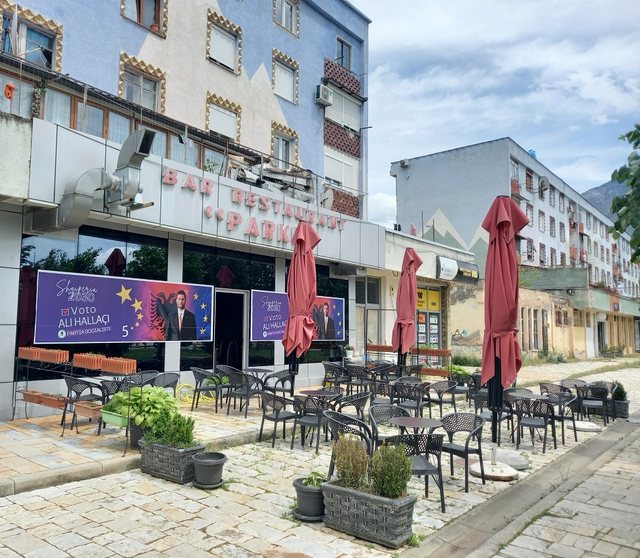
“Others promise and don’t deliver, while I deliver without promising,” is the slogan used by Eduard Shalsi, leader of the Socialist Party’s list for the Kukës region. But in the village of Mamëz in Kukës, residents are protesting the unfulfilled promise of road construction.
At the electoral meeting held in Mamëz, Shalsi was met with criticism from residents. While he promised a European passport, residents demanded roads, computers for the school, drinking water and water for irrigation.
"In the name of supposed tourism, roads are being paved in the mountains for wolves and you don't care about people," said Kujtim Bajrami, a resident of the village of Mamëz, at a meeting with SP parliamentary candidates.
The village is known for producing nickel silicate ore, which is exported to Kosovo and North Macedonia worth tens of millions of euros. For years, residents have been demanding the construction of a 5-kilometer road.
In the Bytyç region in the municipality of Tropoja, residents share the same problem.
"The Socialist Party candidates promise us a European passport, but in terms of road infrastructure we are worse off than during World War II, when fascist Italy built the Kam-Qafë-Prushi road," says Izet Malaj, a resident of the village of Peraj in the province.
"Since then, no one has touched this road. In the name of tourism, they are building roads in Qerem, Padesh and Kasaj, where there are no residents, avoiding investments in residential areas," he added, emphasizing that the protests will continue after the elections.
In the northeastern city with massive desertification in recent years, Rama declared on April 30 that the Kukes region will count a full 1 million tourists by 2030, while promising that the underground city of tunnels will be the main attraction.
"First fix the city above and where the people are, and then the underground one," says Avdi Gjana, representative of political prisoners in Kukës.
During the communist regime, Gjana refused to participate in the facade voting and was punished for this with 8 years in prison after a trial on fabricated charges of agitation and propaganda. But he has also boycotted all elections held in pluralism from 1991 to the present.
Gjana told BIRN that she had noticed good organization of the campaign this year, but not from all sides.
"The DP and ASHM have held meetings with the politically persecuted, while the left has not. More precisely, so far they have not invited us," he says.
The disconnect between government and reality is also visible in the village of Shishtavec, where residents are insistently demanding the commissioning of the Kallabak reservoir, but through a project by the Albanian Development Fund, the government has declared that lake and is planning to build a road.
Residents of the area say that this was not their will.
“Rezervuari është ndërtuar për të vaditur parcelat me patate, këta e kanë shpallur atraksion turistik,” thotë Mehmet Bala, kryeplak i fshatit. “Banorët e këtij fshati kanë kërkuar që të rivihet në funksion ky rezervuar për vaditje,” shtoi ai.
Mungesë platformash
Opozita në qarkun e Kukësit është besimplotë në fitore, madje ka shpallur si objekt që të dalë me një diferencë me 10 mijë vota ndaj Partisë Socialiste. Megjithatë, përfaqësuesit e opozitës thonë se votuesit po përballen me presione dhe se i janë drejtuar SPAK me denoncime për intimidimet.
“Kemi kërkuar që banorët të votojnë të lirë, por vërejmë se ka intimidime të votuesve. Ka forca që kërkojnë të marrin vota në mënyrë të tërthortë dhe në kundërshtim me ligjin,” i tha BIRN Flamur Hoxha, drejtuesi politik i Aleancës Shqipëria Madhështore në Kukës.
Hoxha thotë se kanë denoncuar në SPAK persona me funksione shtetërore dhe Prokuroria është vënë në lëvizje. Koalicioni opozitar synon që të marrë në këto zgjedhje 2 nga 3 mandatet e qarkut, pavarësisht pretendimit të PSD për marrjen e një mandati në këtë qark.
“Kemi një program shumë të mirë qeverisës, ndërkohë që keqqeverisja e kundërshtarit, diskriminimi që i është bërë qarkut të Kukësit nga qeveria dhe nevoja për ndryshim ndikojnë në fitoren e padiskutueshme të ASHM-së në qarkun e Kukësit,” shtoi Hoxha.
Hoxha thotë se banorët e qarkut të Kukësit janë në kushtet e mungesës së nevojave bazike dhe infrastruktura rrugore, nevoja për ujë për ujë të pijshëm apo për vaditje vazhdojnë të jenë kërkesat e tyre kryesore.
Plaga e emigrimit është një shqetësim tjetër shumë i madh që e shoqëron prej vitesh qarkun e Kukësit, ndërsa sipas Hoxhës, mungon shërbimi shëndetësor, problemet e pazgjidhura të pronësisë si dhe mungesën e mbështetjes në bujqësi.
Hoxha premton gjithashtu se nëse PD-ja vjen në pushtet pas zgjedhjeve të 11 majit për qarkun e Kukësit do të ketë disa prioritete, mes së cilave edhe heqjen e tarifës së pagesës për Rrugën e Kombit, pavarësisht se koncesionari ka një kontratë 30 vjeçare me qeverinë.
Për përfaqësuesin e shoqërisë civile, Rifat Demalia, premtimet e opozitës janë të parealizueshme.
“Premtimet e opozitës janë të parealizueshme, pasi opozita nuk është e interesuar të vijë në pushtet. Kjo opozitë është më e vjetër se sa pozita, që është 12 vjet në pushtet. Pra, është e papërgatitur për të marrë pushtetin dhe e paqartë për zhvillimin e rajonit. Ndërkohë që nuk ka burimet e duhura njerëzore,” thotë Demalia, drejtor ekzekutiv i Qendrës për Progres Rinor.
Demalia kritikon partitë politike se u mungojnë platformat për zhvillimin e rajonit, se e kanë lënë emigracionin jashtë diskutimeve apo debateve të tyre dhe se nuk kanë prezantuar asnjë plan për punësimin e të rinjve dhe klimën e biznesit, që sipas tij janë probleme kryesore. Në vend të alternativave, Demalia ka vënë re se si votuesit ashtu edhe partitë politike shkëmbejnë premtime për halle personale.
"The promises are an imitation of the leaders at the center. The leader talks about a European passport, and they repeat his promise. They do not explain to the electorate or debate how a European passport can be achieved with this high level of corruption, destroyed infrastructure, and food insecurity," he adds.
Meanwhile, urban planner Andrit Shehu lists the arrangement of neighborhoods, sewage, but also waste management as urgent matters.
"For the municipality of Kukës, the problem continues to remain the systematization of neighborhoods, especially the informal one, or as it is called the New Neighborhood, the systematization and discipline of the city's wastewater, but also of the villages, the management of urban waste, the connection of villages with roads, and the solution to the problem of entry and exits in the city of Kukës caused by the construction of the new bridge," says Shehu.
Bahri Hoxha, another persecuted political figure exiled during the communist era in the villages of Durrës, now living in Florence, sadly experiences the harsh political language, while emphasizing that an emancipation of society is needed.
"The problem we have in Albania is the lack of emancipation of society," he said while condemning attacks and insults against politicians. "Let's not get caught up in the consequences, but in the cause," he concluded. Reporter.al
Latest news






Photo session with LaCivitta in Tirana: For Great Albania
2025-05-08 18:40:18
Source: DASH decision a personal victory for Berisha
2025-05-08 18:30:10
Take off those crazy glasses and see where you've taken him?
2025-05-08 18:02:47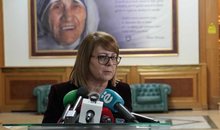
LDK files criminal charges against members of the incumbent Government
2025-05-08 18:02:00

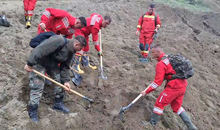
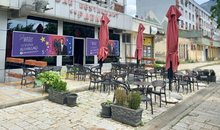



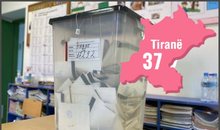
BIRN analysis: Tirana, the determining district for the future majority
2025-05-08 16:04:03
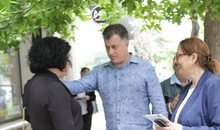



Chris LaCivita's contract with the DP, Berisha: 100% correct and clean
2025-05-08 15:11:11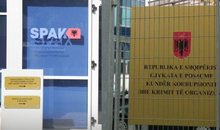
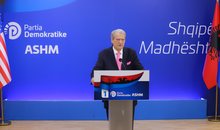
"These are the peak days", Berisha reveals when he will travel to the USA
2025-05-08 14:45:25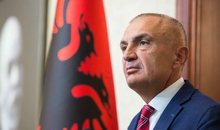


Endless boxes with filled-in ballots, DP demands separation of votes from Greece
2025-05-08 14:11:12

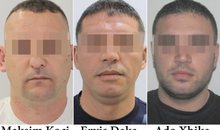
Photo/ Who are the 3 associates of Talo Çela arrested in Dubai?
2025-05-08 13:37:09
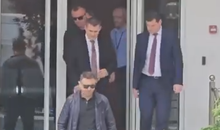
Hetimi për krimet zgjedhore, Altin Dumani zbarkon në Prokurorinë e Shkodrës
2025-05-08 13:06:21
DASH paves the way for Berisha, Alizoti: Great news on the eve of Great Albania!
2025-05-08 13:03:48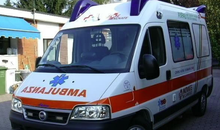
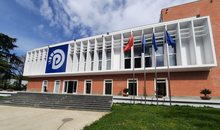
"Freedom works", DP welcomes the US position
2025-05-08 12:48:07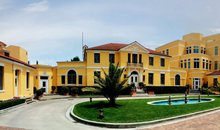
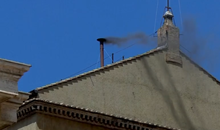
Black smoke rises from the Sistine Chapel, the Vatican still without a Pope
2025-05-08 12:26:18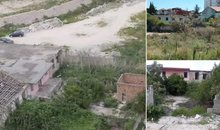



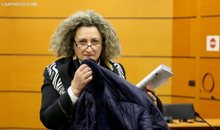
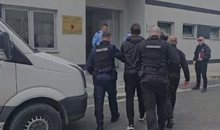
Davide Pecorrelli extradited to Albania
2025-05-08 11:29:04
'May 11, Albania will react', Xhaferri: Electoral criminals will pay
2025-05-08 11:21:46

Gjin Gjoni: Non Grata fell, Rama should get ready to go to McGonigal
2025-05-08 11:01:54
May 8th deadline for immigrants to vote in Greece extended by one day
2025-05-08 10:48:42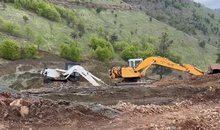
Collapse of massive chrome structure, still no trace of 29-year-old
2025-05-08 10:40:04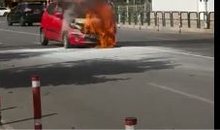
Vehicle bursts into flames in Paris Commune
2025-05-08 10:25:43
He gave land to his father and cousin, Basir Çollaku denounces the SP candidate
2025-05-08 10:16:16
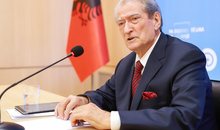

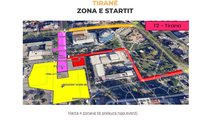
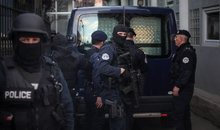
Electoral Crimes/ BKH agents and Police conduct checks in Shkodra
2025-05-08 09:19:13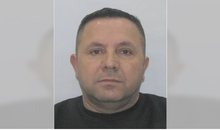
3 associates of Talo Çela arrested in Dubai
2025-05-08 09:02:28
Mouse in the owl's claws, Chris LaCivita responds directly to Rama
2025-05-08 08:45:40
Foreign exchange, how much foreign currencies are sold and bought today
2025-05-08 08:30:38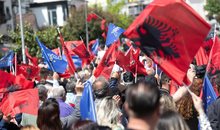
BIRN: Organized crime, the 'invisible party' of the Durrës elections
2025-05-08 08:26:35
Horoscope, what do the stars have in store for you today?
2025-05-08 08:08:15
Cloudy and rainy, what the weather is expected to be like throughout the day
2025-05-08 07:52:13
Posta e mëngjesit/ Me 2 rreshta: Çfarë pati rëndësi dje në Shqipëri
2025-05-08 07:40:16


Rama attacks Bardhi: Fier cannot be represented by the world's gas
2025-05-07 22:36:22
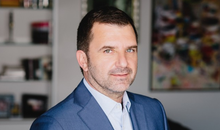

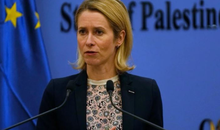
EU calls on Israel to lift humanitarian blockade in Gaza
2025-05-07 21:42:34
"Russia is "asking for a lot"! Vance calls for direct Moscow-Kiev talks
2025-05-07 21:20:16

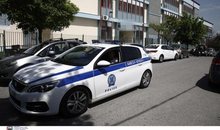
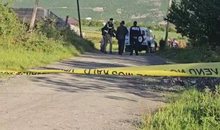
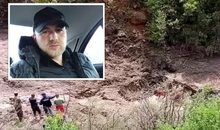
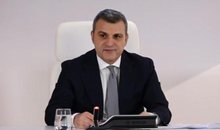
Bank of Albania sets limits on home loans, Sejko: The maximum will be 85%
2025-05-07 20:16:10

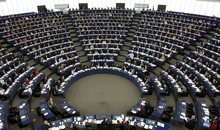
EP calls for immediate lifting of measures against Kosovo
2025-05-07 19:39:58



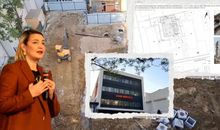

Accident on the Elbasan-Peqin axis, three police officers injured
2025-05-07 18:18:35

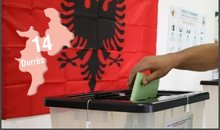
Durrës, a key mandate for the future majority is at stake
2025-05-07 17:34:00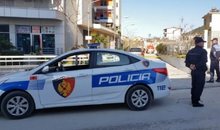
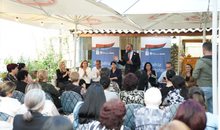
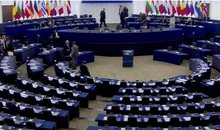
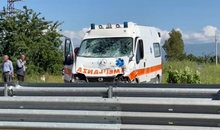
Truck collides with ambulance, police: Nurse and patient's father among injured
2025-05-07 16:51:06
The SP MP and minister "join the DP", support Jorida Tabaku with two fingers up
2025-05-07 16:33:41
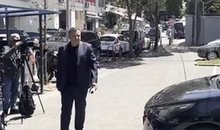
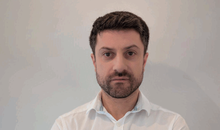
A dose of cocaine was found on him, the candidate for MP in Saranda was arrested
2025-05-07 16:02:52
Truck and ambulance collide on the Fier-Lushnjë axis, four injured
2025-05-07 15:51:13

4 ways to avoid spring viruses
2025-05-07 15:28:08
